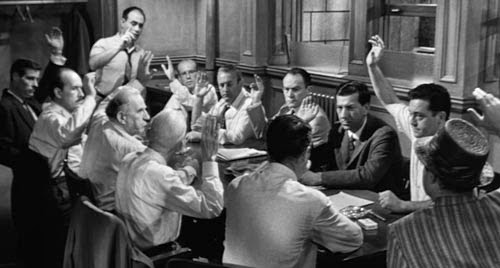Jury Deprived of Lesser in Reckless Driving Death Case
Last week, the Michigan Supreme Court rendered its decision in People v Thabo Jones, Docket No. 147735 (December 23, 2014), upholding the constitutionality of MCL 257.626(5). That statute mandates that, when the defendant is charged with reckless driving causing death (MCL 257.626(4)), the trial court shall not instruct the jury on the lesser offense of committing a moving violation causing death under MCL 257.601d. The difference is significant in that the former carries a maximum penalty of 15 years imprisonment, where the latter is a one-year misdemeanor.
Judge Richard Scutt, ruling on a pretrial request for the lesser included jury instruction, held MCL 257.626(5) was unconstitutional in that it infringed on the judiciary's authority to regulate court practice and procedure. The prosecution sought interlocutory relief and the Court of Appeals (JJ. Ronayne-Krause and Shapiro, with K. F. Kelly dissenting) affirmed. The Supreme Court granted leave and held the following:
"The circuit court erred by granting defendant’s request to instruct the jury on moving violation causing death. The Legislature acted within its constitutional authority by creating a substantive exception that prohibited the jury’s consideration of that lesser offense when the charged offense is reckless driving causing death.
1. MCL 768.32(1) sets forth the general rule that a defendant is entitled to have the jury instructed on necessarily included lesser offenses. MCL 257.626(5) sets forth a clear exception to this general rule: when a defendant is charged with reckless driving causing death, the jury shall not be instructed regarding the crime of moving violation causing death. Under People v Cornell, 466 Mich 335 (2002), this legislative modification did not impermissibly infringe the Supreme Court’s constitutional authority to enact rules governing practice and procedure because determining what charges a jury may consider concerned a matter of substantive law.
2. Defendant did not have a Sixth Amendment right to have the jury instructed on moving violation causing death. While the United States Supreme Court has ruled that the jury must have the opportunity to convict on a lesser included offense in capital cases, it has expressly declined to rule on whether there is a constitutional entitlement to have the jury consider lesser included offenses in cases involving noncapital offenses. The fact that MCL 257.626(5) is silent in the context of a judge sitting as finder of fact did not alter this conclusion. Given the clear intent of the Legislature to forbid consideration of the lesser misdemeanor offense of moving violation causing death when a defendant has been charged with reckless driving causing death, a judge trying a case without a jury would understand that the defendant could not be convicted of the lesser offense."
James C. Howarth handled the case for the defense and Timothy Baughman represented the prosecution.
Judge Richard Scutt, ruling on a pretrial request for the lesser included jury instruction, held MCL 257.626(5) was unconstitutional in that it infringed on the judiciary's authority to regulate court practice and procedure. The prosecution sought interlocutory relief and the Court of Appeals (JJ. Ronayne-Krause and Shapiro, with K. F. Kelly dissenting) affirmed. The Supreme Court granted leave and held the following:
"The circuit court erred by granting defendant’s request to instruct the jury on moving violation causing death. The Legislature acted within its constitutional authority by creating a substantive exception that prohibited the jury’s consideration of that lesser offense when the charged offense is reckless driving causing death.
1. MCL 768.32(1) sets forth the general rule that a defendant is entitled to have the jury instructed on necessarily included lesser offenses. MCL 257.626(5) sets forth a clear exception to this general rule: when a defendant is charged with reckless driving causing death, the jury shall not be instructed regarding the crime of moving violation causing death. Under People v Cornell, 466 Mich 335 (2002), this legislative modification did not impermissibly infringe the Supreme Court’s constitutional authority to enact rules governing practice and procedure because determining what charges a jury may consider concerned a matter of substantive law.
2. Defendant did not have a Sixth Amendment right to have the jury instructed on moving violation causing death. While the United States Supreme Court has ruled that the jury must have the opportunity to convict on a lesser included offense in capital cases, it has expressly declined to rule on whether there is a constitutional entitlement to have the jury consider lesser included offenses in cases involving noncapital offenses. The fact that MCL 257.626(5) is silent in the context of a judge sitting as finder of fact did not alter this conclusion. Given the clear intent of the Legislature to forbid consideration of the lesser misdemeanor offense of moving violation causing death when a defendant has been charged with reckless driving causing death, a judge trying a case without a jury would understand that the defendant could not be convicted of the lesser offense."
James C. Howarth handled the case for the defense and Timothy Baughman represented the prosecution.




Comments
Post a Comment